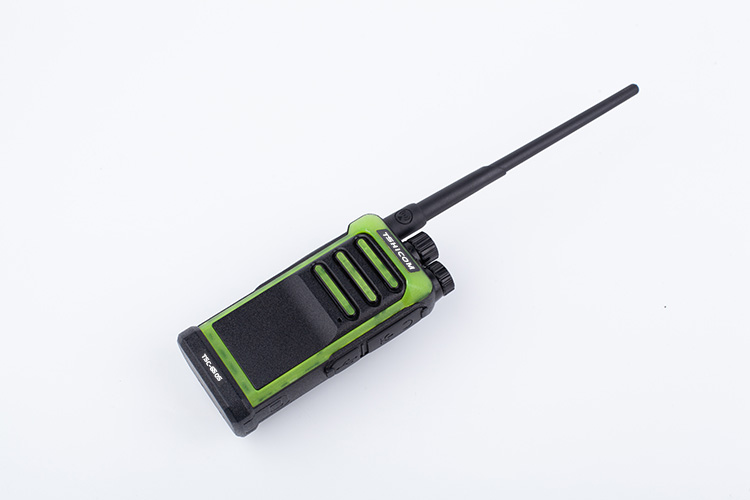Abstract: Long-range walkie-talkies are communication devices that enable long-distance conversations. This article primarily discusses the features of digital walkie-talkies, including good call quality, high spectrum efficiency, long communication distance, strong anti-interference capabilities, and good confidentiality. It also provides a brief analysis of the methods employed for achieving long-distance communication.

Communication methods and features of long-range walkie-talkies
Communication Methods of Long-Range Walkie-Talkies
Digital walkie-talkies utilize communication protocols with relay capabilities. Based on the spatial distribution of walkie-talkie devices, digital signaling is employed to relay signals between calling and receiving walkie-talkies through intermediary devices. These intermediary devices can directly communicate with both the calling and receiving walkie-talkies. The digital design with relay functionality ensures excellent call quality, high spectrum efficiency, long communication distance, strong anti-interference capabilities, good confidentiality, compact size, low power consumption, high integration, and easy product updates and feature expansion within the 400MHz public frequency range in China.
Features of Long-Range Walkie-Talkies
1. CTCSS (Continuous Tone-Coded Squelch System) and DCS (Digital Coded Squelch) audio.
2. Computer programming and adjustment, allowing parameter programming and indicator adjustments via connection to a personal computer through a universal interface.
3. 16 memory channels, phase-locked loop frequency synthesis, microcomputer control, simple menu, and convenient operation.
4. Comprehensive functions, great value for money, stylish appearance, compact and lightweight, and rugged durability.
5. Stable performance, high-capacity original battery for long usage, natural sound quality, and easy communication.
6. Power-saving function to extend battery life.
7. Earphone/microphone jack for convenient listening and communication.
8. Low battery alert function, channel scanning, and voice prompts in both Chinese and English.
9. Wide/narrow band selection, high/low power switching, and transmission time limit.
Technical Specifications:
- – Frequency Range: 400-470MHz
- – Memory Channels: 16
- – Rated Voltage: DC7.4V (rechargeable lithium battery)
- – Antenna Impedance: 50Ω
- – Operating Mode: Same-frequency simplex or different-frequency simplex
– Transmitting Section:
- – Output Power: ≤8W
- – Battery Capacity: 2800mAh
- – Transmitting Current: ≤1.3A
- – Spurious Emission: <7uW
- – Modulation Sensitivity: 12mV
- – Maximum Frequency Deviation (Wide/Narrow Band): <5kHz/<2.5kHz
– Receiving Section:
- – Reference Sensitivity: -122dBm (12dB SINAD)
- – Modulation Reception Bandwidth: 5Hz
- – Audio Power: 0.3W
- – Audio Distortion: <10%
- – Blocking: ≥85dB
- – Intermodulation (Wide/Narrow Band): ≥60dB
- – Spurious Response Suppression: ≥65dB.
